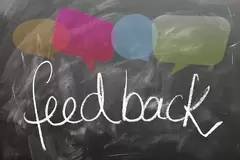
We are excited to report participation in our survey across programs was our highest yet from 97% of partner schools with over 600 individual responses!
The Mid-Year Partnership Survey asks our partners how we are doing with components of the UE Model related to Culture and Climate, Direct Services, Progress Reporting and Equity. For students receiving direct services at our school sites, we asked our partners four questions:
- If they find the provider(s) of these interventions to be professional and collaborative
- If the providers are knowledgeable and skillful in helping teachers to implement classroom interventions to support students receiving this service
- If teachers feel well informed about what their students are working on and what growth they are making with Seneca.
- If Seneca staff work to collaboratively explore racial identity, historical racism, and implicit/explicit bias and the ways these impact students’ needs and experiences in the classroom.
As in past years, data collection and reporting continue to be a program priority (#datatellsastory) and little by little this is an area where, at this mid-year point, we saw an increase to 75%, up from 74% last year and headed towards our goal for the year of at least 80% which we are hopeful to hit in our End of Year Surveys!
Our second, and equally important program priority, is our commitment to equity (#opportunityoveroppression) and to disrupt the ways in which our existing systems create barriers to educational access and opportunity particularly at the intersection of race, economic attainment, and ability status. This is the second year that we have included our question about “working collaboratively to explore racial identity” and we are encouraged that for the second year we have averaged above our goals of 80%. Not only did we meet our goal though but continued to climb, reaching 85%, up from 81% last year.
We know however that there is more to the story than just the numbers and, to get the full picture we also elicit specific feedback and suggestions from our partners on where we can continue to improve practice. Equally important to the many highlights and celebrations we received are the areas for growth that partners ask for in order to recalibrate on our commitments and efforts in support or positive student outcomes. This feedback is crucial to our reflective process and setting our intentions for the remainder of the year. This year, we saw some similar themes emerge across our partners: A) wanting to hear more about goals and progress students are making, B) receive more training and guidance to implement classroom interventions, C) increase small group interventions provided, and D) for more school-wide professional development opportunities provided by Seneca.
“I would just like to know a little more about strategies that the therapist uses with my students, so that I can be sure to implement the same strategies in my classroom.”
“It would be great to get a little more insight on what the student's specific goals are and how they are trying to work towards those. That way, I could better support in the classroom!”
“It would be nice to have group sessions with students because the small groups seem to work well.”
“If possible, it would be great if Seneca therapists can facilitate groups or work in partnership with other therapists to co-facilitate groups.”
“I think Seneca staff could do more training to best support other students in the classroom.”
“More time for PD's presented by Seneca, such as escalation cycle, behaviors, data collection, etc.”
“There is a strong partnership between Seneca leadership and the School Admin team. I feel that we are collaborating effectively. A particular strength has been our work around professional development this year for the entire school staff. These have felt impactful.”
“Something that is going well this year with the Seneca partnership is the strong relationships being built between Seneca providers, students, and other staff members. The partnership continues to support school staff members with interventions that have helped students make tremendous progress towards their individual goals.”
“I believe school culture has been positively impacted by our Seneca partnership, specifically I feel like scholar voices have been uplifted by our partnership.”
“Very positive impact on culture. They address myriad aspects of school culture, from students to staff. They are responsive and quick, but also methodical.”
“Student behavior has improved. There has been a shift in the way students respond to conflict. I believe it is due to the structure and support from our Seneca staff working with our school admin.”
“Seneca therapists are always there when a student needs support. There is always a change for the better when Seneca becomes involved with a student.”
“Students begging to get back into the social skills group b/c of the support and growth they experienced there.”
“As staff I feel supported and appreciated through the emails we received every Wednesday. For me it is a way to lift myself up when I have needed it the most. I have been supported in my classroom when I called for support with some students and I have seen staff coming to my classroom with other students and seeing how she engages with them and how she makes an impact on them is always a reminder on how important it is to have our Seneca coach here.”
“I receive regular updates on what skills students are practicing in their sessions so that they can continue to practice these newly learned skills in non-therapeutic contexts.”
“We couldn't have survived without Seneca and their support system a few years back when they first came on campus. Our behavior needs were so intensive. Now behaviors are leveling out thanks to in part the strategies they have taught our students and the support the students receive.”
“The service providers from Seneca with whom I have contact have been exemplary in the care they demonstrate for meeting the needs of the students with whom they work as well as in communicating with me and other staff members about the implementation of strategies for improving service provision to these students.”
“Our clinicians' care for the students is transparent, warm, and consistent. I really feel we are in this together and all our kids are ALL our kids. My students express positive feelings towards our clinicians.”


 RSS Feed
RSS Feed